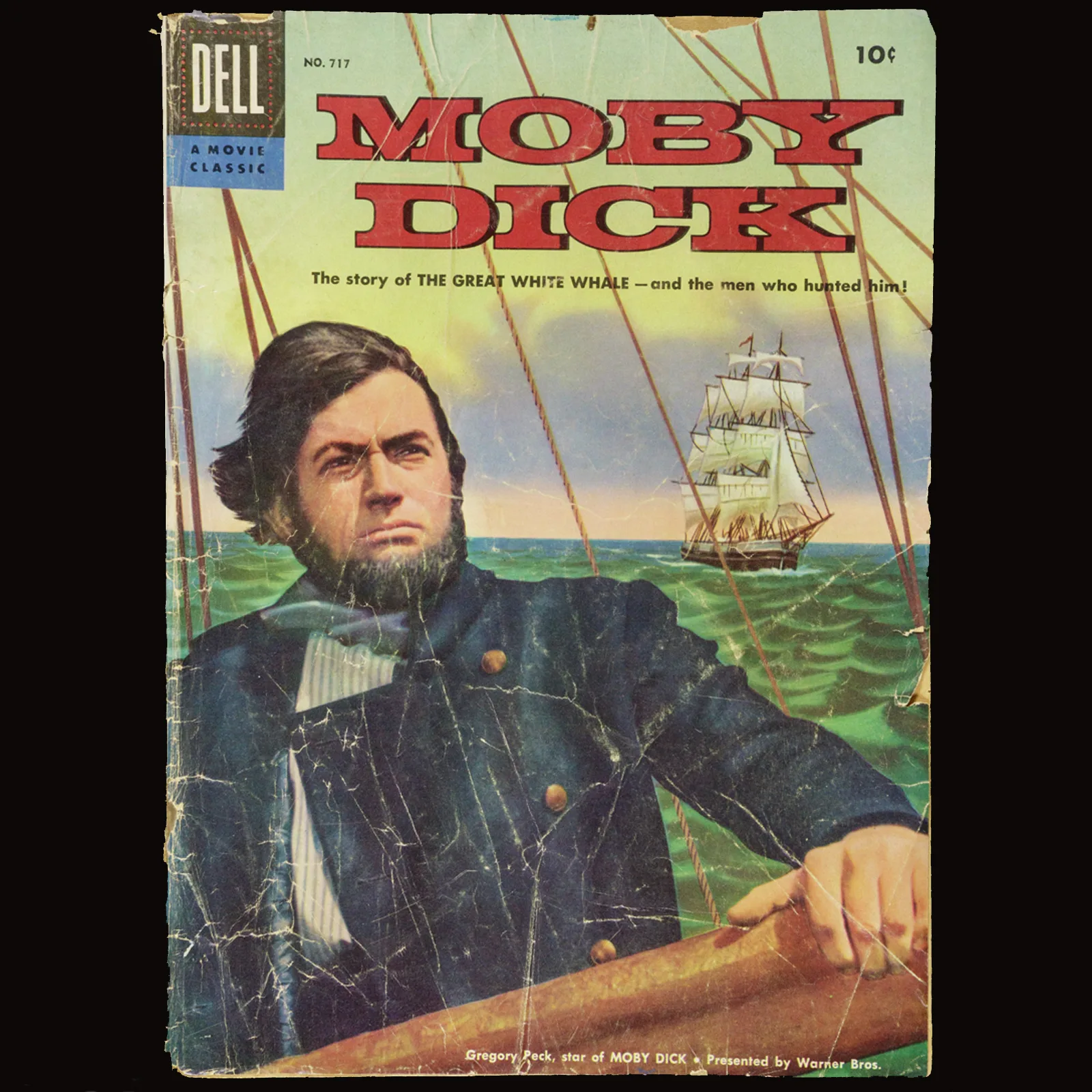This program will be held virtually on Zoom. Please register for free in advance here.
NOTE: You can also watch a live stream of the program on the Newberry Facebook page or YouTube channel.
Ray Bradbury is best known for fantasy and science fiction novels like Fahrenheit 451, The Martian Chronicles, and The Illustrated Man. Yet the writer also worked in many other forms, including poetry, non-fiction, children's literature, and plays. In 1953, the renowned film director John Huston asked Bradbury to undertake the epic task of transforming Herman Melville's Moby-Dick into a movie script—even though, as Bradbury confessed, he’d never “been able to read the damn thing.”
In this program, coinciding with the American Writers Museum’s new exhibition Ray Bradbury: Inextinguishable, scholars Robin Anne Reid and Jaime Campomar will talk with the Newberry’s Will Hansen about Bradbury’s Moby-Dick script, the author’s place in the history of literature, and the connections between his work and the writings of Herman Melville.
This program is cosponsored by the American Writers Museum.
About the speakers:
Robin Anne Reid retired in 2020 as a professor in the Department of Literature and Languages at Texas A&M University-Commerce and is enjoying doing research as an independent scholar. Her publications include books on Ray Bradbury and Arthur C. Clarke, as well as the first encyclopedia on women in science fiction and fantasy, for Greenwood Publishing. She serves as Area Chair for Tolkien Studies for the Popular Culture Association. In her research, she applies critical race, feminist, and gender theories to science fiction and fantasy fiction, with occasional forays into film and fan studies. Recent publications have focused on work by Lois McMaster Bujold and Ann Leckie.
Jaime Campomar is a PhD candidate in George Washington University’s English Department, where his research focuses on nineteenth-century U.S. literature, textual studies, adaptation studies, and film studies. His dissertation examines the use of ekphrasis in the production process of John Huston’s Moby-Dick and deals with everything from Bradbury’s screenplay drafts and Warner Bros’s marketing strategy to the ways the film impacted the representation and reception of race and disability on screen during the 1950s.
Will Hansen, moderator, is the Newberry’s Director of Reader Services and Curator of Americana. He curated the Newberry’s 2019 exhibition, Melville: Finding America at Sea.
About the Newberry’s Herman Melville Collection:
Perhaps the largest collection of Melville material in existence, the Newberry’s Herman Melville Collection is nearly complete in its holdings of editions issued during Melville’s lifetime and extensive in editions and printings from his death to the present; collected works and selections; periodicals to which he contributed; translations; books about Melville; books on whaling; books Melville used as source material; books of which Melville owned a copy; and Melville titles in other formats: comic books, Braille, audio tapes, etc.
Your generosity is vital in keeping the library’s programs, exhibitions, and reading rooms free and accessible to everyone. Make a donation today.
